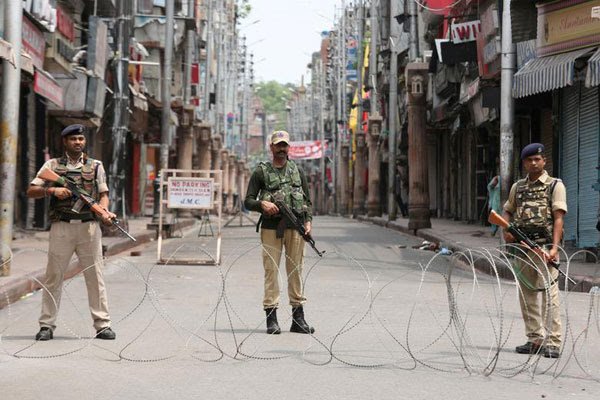UN Experts: New Kashmir Laws Reduce Political Representation of Local Groups

Srinagar, MINA – The loss of autonomy in August 2019 and introduction of new laws may lead to a reduced level of political representation and participation of local groups in the Indian-administered Jammu and Kashmir, according to UN experts.
The concern was raised by five UN special rapporteurs in a letter to the Indian government on Feb. 10 that was made public by the UN on Saturday as quoted from Anadolu Agency.
The special rapporteurs are for minority issues, promotion, and protection of the right to freedom of opinion and expression; the rights to freedom of peaceful assembly and association; contemporary forms of racism, racial discrimination, xenophobia and related intolerance; and the special rapporteur on freedom of religion or belief.
They said native groups such as Kashmiri, Dogri, Gojri, Pahari, Sikh, Ladakhi, and other minorities faced reduced levels of political representation and participation due to the “abolishment of the regional government and its power to legislate.”
Before Aug. 5, 2019, the Indian-administered Jammu and Kashmir was the only state that had its own constitution and a bicameral assembly that could make laws.
Another provision scrapped by New Delhi-Article 35A- barred outsiders from buying properties or applying for government jobs in the region.
Not only were these provisions abrogated, but also the state was divided into two centrally ruled territories of Ladakh and Jammu and Kashmir.
The Indian-administered Jammu and Kashmir is currently ruled directly by New Delhi through a lieutenant governor.
At present, there is no member of the Kashmiri Muslim community, the largest ethnic group in the region, in the governor’s secretariat.
The rapporteurs said the new citizenship law “may cause demographic changes” and “risks undermining the linguistic and cultural rights and the freedom of religion or belief of the people of Jammu and Kashmir in the autonomous region which had been established in 1947 to guarantee their ethnic, linguistic and religious identities.”
“New domicile laws have made it easier for an individual outside Jammu and Kashmir to obtain residency certificates of the region than the native residents,” the UN experts said.
These laws also risk diminishing native residents’ access to public employment, they warned, adding that it was a “matter of grave concern” that New Delhi could modify residency laws without the consultation of the local population.
Fast-tracking the process of residency certification and revising the residency rights of native residents “may be discriminatory and further deteriorate the overall human rights situation of the minorities there,” the UN rapporteurs said.
“It is also feared that the military presence in the area is likely to increase, which might lead to a possible higher risk of human rights violations,” read the letter.
The Indian government’s attention was also drawn towards “concerns expressed in previous communications regarding the ongoing internet shutdowns, restrictions on the right to freedom of assembly and the right to freedom of expression, as well as the reported pattern of detentions and harassment of journalists and human rights defenders.”
These actions, the UN experts added, “may not have given the people of Jammu and Kashmir the possibility to meaningfully participate in the political process around the new residency laws and other matters.”
The experts reminded the Indian government that concerns about the “deteriorating human rights situation in Jammu and Kashmir, including alleged ongoing violations of India’s minorities, particularly Kashmiri Muslims” have been raised in five earlier communications by several special rapporteurs since August 2019.
The Indian government has responded to none of these communications so far, according to the UN. (T/RE1)
Mi’raj News Agency (MINA)



